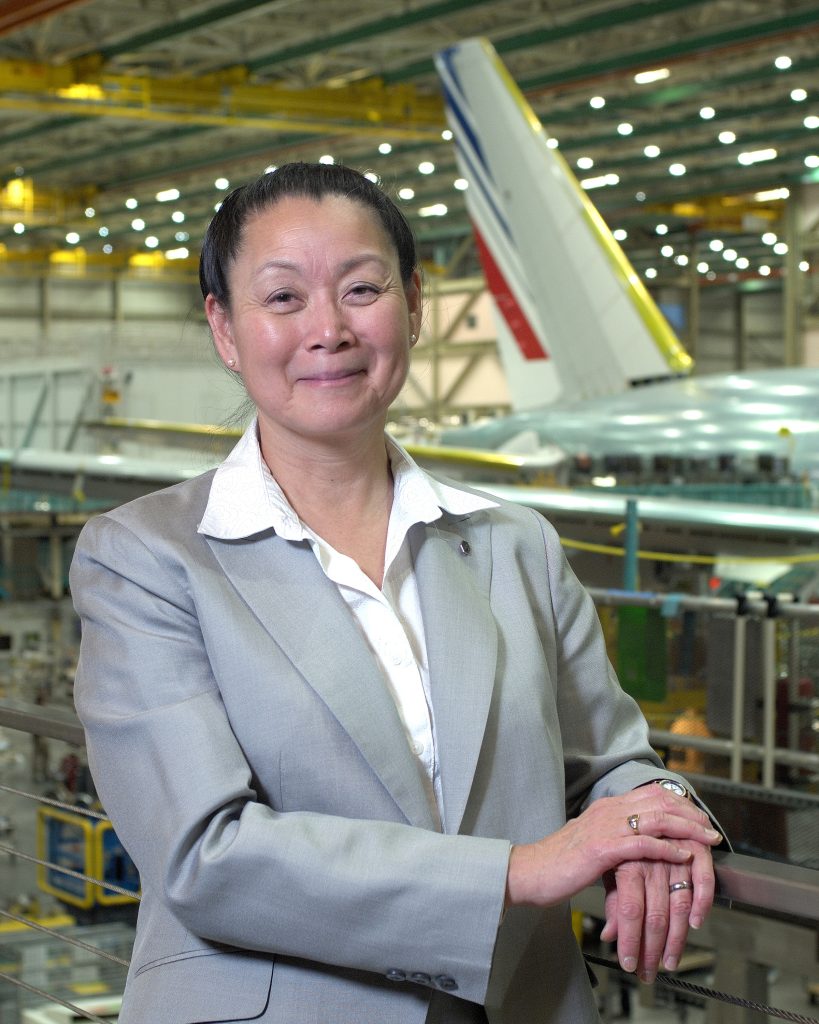
Dianne Chong, PhD, FSME, FABET, FASM, NAE was vice president for Boeing Research and Technology in the Boeing Engineering, Operations & Technology organization. In this position, she led special projects that impacted processes and program integration for the Boeing Enterprise. Prior to this, she was vice president of materials, manufacturing, structures and support in the Boeing Engineering, Operations & Technology organization.
Dr. Chong was elected to the National Academy of Engineering and the Washington State Academy of Science in 2017. She has served as the St. Louis representative to Military Handbook 5 where she has chaired the Aerospace Users’ Group and titanium casting group.
Chong is also past president of ABET and served on the ABET Board of Directors representing engineering. She is a member of TMS, AIAA, ASM International, SME, SWE, Beta Gamma Sigma, and Tau Beta Pi. She has served on the board of trustees, is a fellow of ASM International, and was elected as the first female president of ASM International. Chong is currently serving as President of SME and has been secretary of the SME Board of Directors and is a fellow of SME.
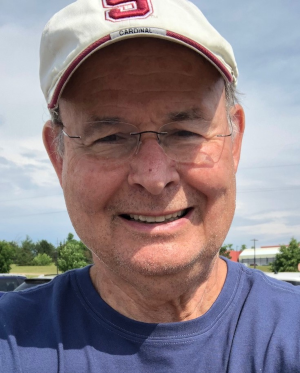 Dr. Sidney W. “Chip” Emery held operations management positions at Honeywell and Bendix, and served as chairman & CEO for MTS Systems for 10 years. He sold Supply Chain Services, his barcode data management systems company, to pursue new opportunities. Emery is a graduate of the U.S. Naval Academy, served in Vietnam, and attained the rank of Lt. Commander as special assistant to the Secretary of the Navy in the Carter administration. He holds an MS in Operations Research and a PhD in Industrial Engineering from Stanford. He also chairs the University of St. Thomas School of Engineering Board of Governors.
Dr. Sidney W. “Chip” Emery held operations management positions at Honeywell and Bendix, and served as chairman & CEO for MTS Systems for 10 years. He sold Supply Chain Services, his barcode data management systems company, to pursue new opportunities. Emery is a graduate of the U.S. Naval Academy, served in Vietnam, and attained the rank of Lt. Commander as special assistant to the Secretary of the Navy in the Carter administration. He holds an MS in Operations Research and a PhD in Industrial Engineering from Stanford. He also chairs the University of St. Thomas School of Engineering Board of Governors.
In addition to his career interests, he has served on the Boards of the Minnesota Opera, the Madeline Island Chamber Music association, OOPS MN, a non-profit foundation to support classical singers in Minnesota, Urologix corporation, Qualigen Therapeutics, and others. His current board affiliation is with TruShrimp, a Minnesota-based shrimp aquaculture company.
As chair of the Board of Governors for the School of Engineering at the University of St. Thomas, Emery has brought all his skills to the support of the vision, mission and values of the school and of the faculty and students.
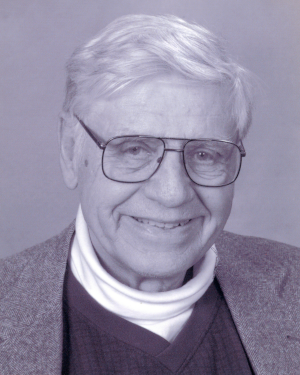 Bob Johnson spent most of his career as an executive at Honeywell. He became president of the Society of Manufacturing Engineers (SME) in the late 1960s and focused on manufacturing education. Later he became an adjunct faculty member in the graduate manufacturing programs at the University of St. Thomas, specializing in teaching automation. As the medical device industry grew in Minnesota, he transitioned to teaching automation as applied to medical device manufacturing. He continued teaching until age 93.
Bob Johnson spent most of his career as an executive at Honeywell. He became president of the Society of Manufacturing Engineers (SME) in the late 1960s and focused on manufacturing education. Later he became an adjunct faculty member in the graduate manufacturing programs at the University of St. Thomas, specializing in teaching automation. As the medical device industry grew in Minnesota, he transitioned to teaching automation as applied to medical device manufacturing. He continued teaching until age 93.
His story ranges from life as a kid in Minneapolis, caddying at a golf course, to becoming a Navy pilot during WWII, to his jobs at Honeywell and education at the University of Minnesota. He was chosen by the president of Honeywell to help the then College of St. Thomas to establish a graduate program in manufacturing systems and engineering, and to teach automation as an adjunct faculty. His is a life of continuous learning and sharing with others through teaching and mentoring.
Katy Kolbeck is a BS electrical engineering graduate of Marquette University. She is retired president/CEO of Dunham Associates. Her career includes more than 30 years of experience in engineering consulting, project management, client service, marketing and firm management. She is a retired Licensed Professional Engineer, has served as board chair for The Works, and continues to serve on many professional boards.
a BS electrical engineering graduate of Marquette University. She is retired president/CEO of Dunham Associates. Her career includes more than 30 years of experience in engineering consulting, project management, client service, marketing and firm management. She is a retired Licensed Professional Engineer, has served as board chair for The Works, and continues to serve on many professional boards.
Katy grew up with a strong admiration of her father, preferring to work with him and her brothers on projects around the house. She was one of very few women in her engineering classes at Marquette University and in her early jobs. She worked at a couple companies as an engineer that were not inspiring, until she joined Dunham Associates, where her career took off.
She has served as chair of the Board of Trustees of The Works, a hands-on engineering and design museum for kids and their grown-ups. She also serves on the Board of the Preservation Design Works, an organization to redefine heritage building reuse, and of Cornerstone, an organization whose mission is to prevent domestic abuse. Katy has also served on the Board of Governors for the School of Engineering at the University of St. Thomas.
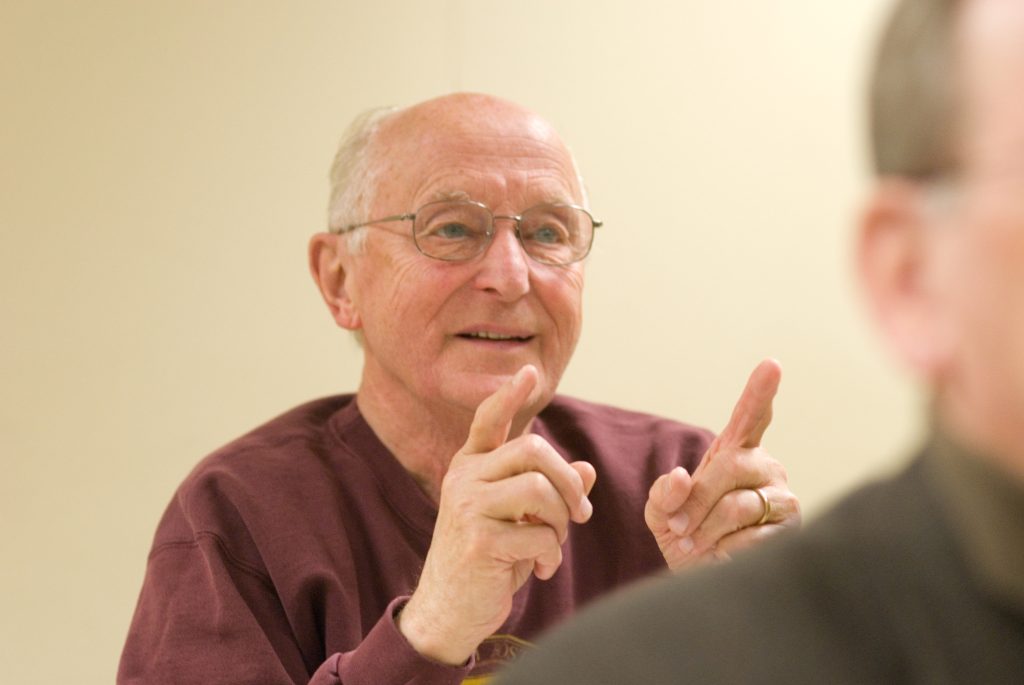
John Povolny pursued a career at 3M Company after serving in the Navy in WWII and completing a bachelor’s degree in chemistry at age 21 at the University of St. Thomas. His career began in a lab developing magnetic recording tape and culminated as divisional vice president of the magnetic tape division. He then joined his alma mater as a volunteer, and continued another 30 years as associate director of the graduate programs in manufacturing engineering and technology management. Along the way he contributed significantly to the education of countless working adult graduate students, and to 3,000 6th grade girls in the summer STEPS camps.
After retiring from 3M, Povolny came to volunteer for the newly formed Graduate Programs in Manufacturing Systems Engineering at the College of St. Thomas in 1985. Over the years, he served as a steady guiding light for the engineering programs, and as a valued advisor to countless working-adult graduate students in the program.
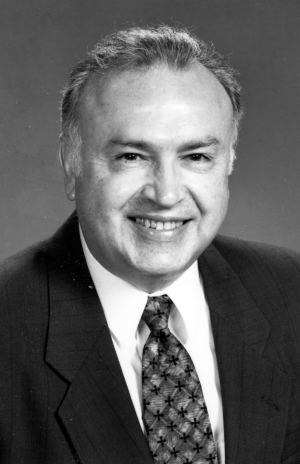 Arnie Weimerskirch is former Honeywell Corporate Vice-President of Quality and Chairman of the Malcolm Baldrige Quality Award judges. He was an adjunct faculty member at the University of St. Thomas, and a former member of the Board of Governors for the School of Engineering. When he retired from Honeywell, he joined the engineering programs at St. Thomas as a 3M Chair, an endowed position funded for hiring a “Professor of Practice.” With his experience in quality, and especially the Malcolm Baldrige National Quality Award, he was instrumental in helping the fledgling engineering programs develop vision, mission and values statements and a strategic plan to guide implementation of the new undergraduate engineering programs, and ultimately to the formation of the School of Engineering.
Arnie Weimerskirch is former Honeywell Corporate Vice-President of Quality and Chairman of the Malcolm Baldrige Quality Award judges. He was an adjunct faculty member at the University of St. Thomas, and a former member of the Board of Governors for the School of Engineering. When he retired from Honeywell, he joined the engineering programs at St. Thomas as a 3M Chair, an endowed position funded for hiring a “Professor of Practice.” With his experience in quality, and especially the Malcolm Baldrige National Quality Award, he was instrumental in helping the fledgling engineering programs develop vision, mission and values statements and a strategic plan to guide implementation of the new undergraduate engineering programs, and ultimately to the formation of the School of Engineering.
His concepts of the Honeywell Value Creation Model and Baldrige Model, while developed primarily for corporations, were important for developing similar models for academia. He incorporated in this planning the concepts of best practices, and beyond that to next practices. One element of this evolution that provided critical information to move to next practices was a benchmarking study of six model universities with exemplary engineering programs.